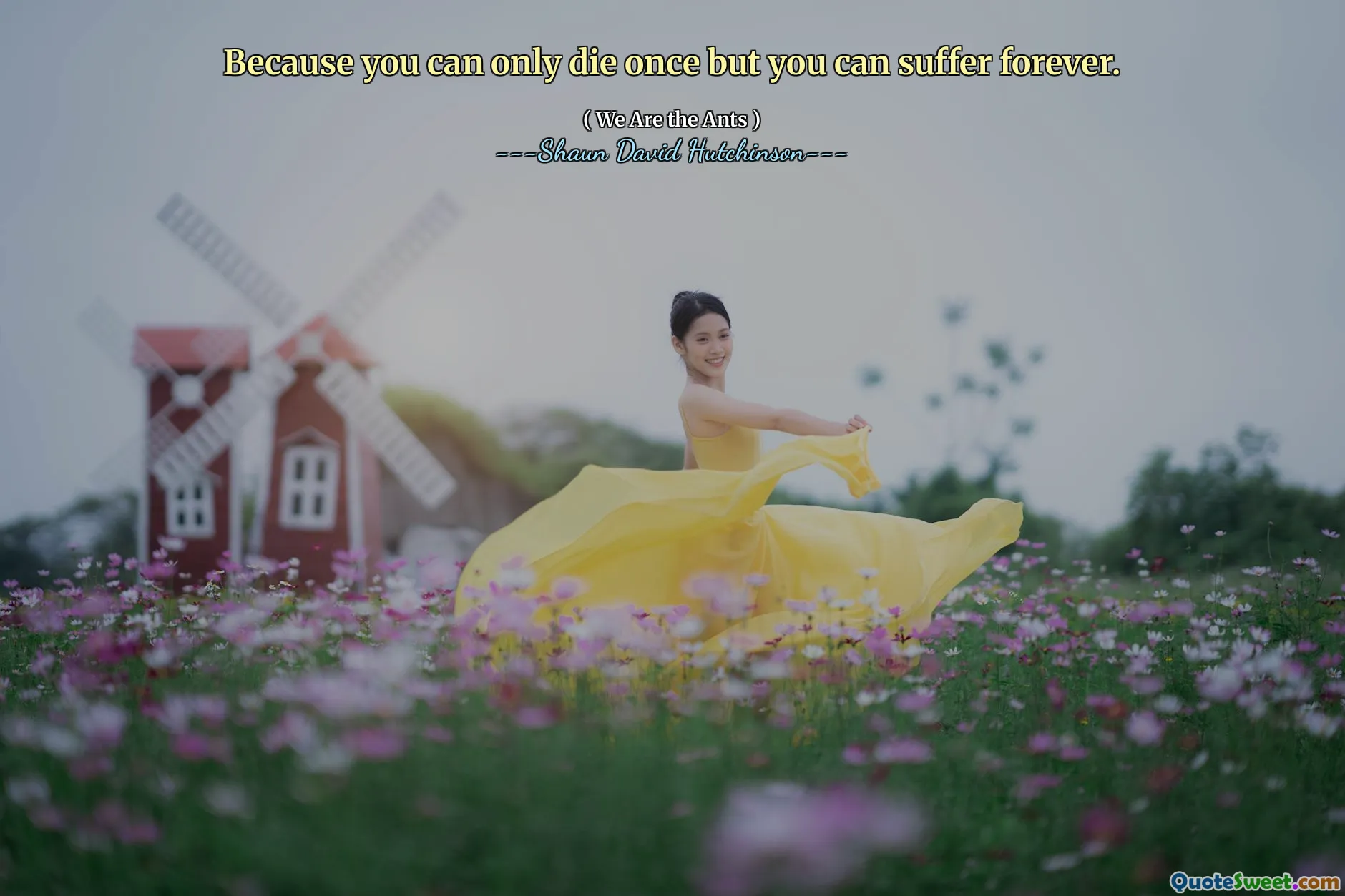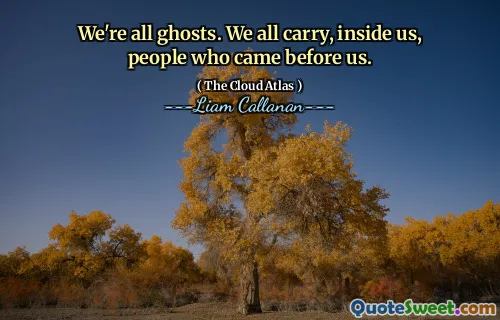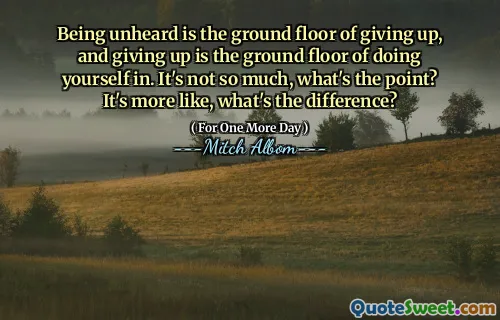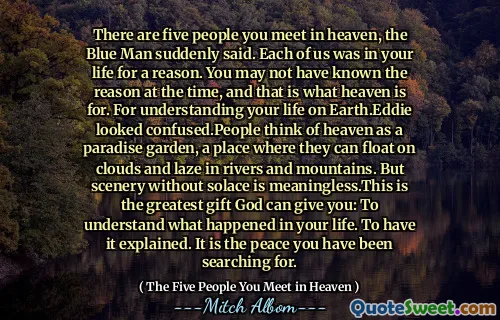
Because you can only die once but you can suffer forever.
This quote encapsulates a profound reflection on the nature of suffering versus mortality. It highlights the sobering reality that while death is a singular, inevitable event, the experience of suffering can be prolonged, recurring, or indefinite, influenced by our mental state, circumstances, and choices. The notion invites a contemplation of how life's hardships, if carried with unresolved pain or bitterness, can become a form of eternal punishment that outlives physical death. It suggests that sometimes, the torment we experience is self-perpetuated—our inability or unwillingness to let go of pain can trap us in a state of ongoing suffering, which can be psychologically torturous. The quote resonates with the idea that emotional and mental battles often eclipse physical demise in their capacity to afflict us long after life's natural course has ended. Such insight urges us to prioritize healing, forgiveness, and resilience, recognizing that holding onto suffering can hinder our growth and peace. In literary and philosophical contexts, this idea echoes themes of internal struggle, the importance of mental health, and the necessity of finding meaning and release from pain to prevent oneself from suffering eternally. Overall, it underscores the importance of confronting and addressing suffering early, so as not to become prisoners of our own unresolved anguish, which can metaphorically extend beyond death and trap us in a endless cycle of pain.






